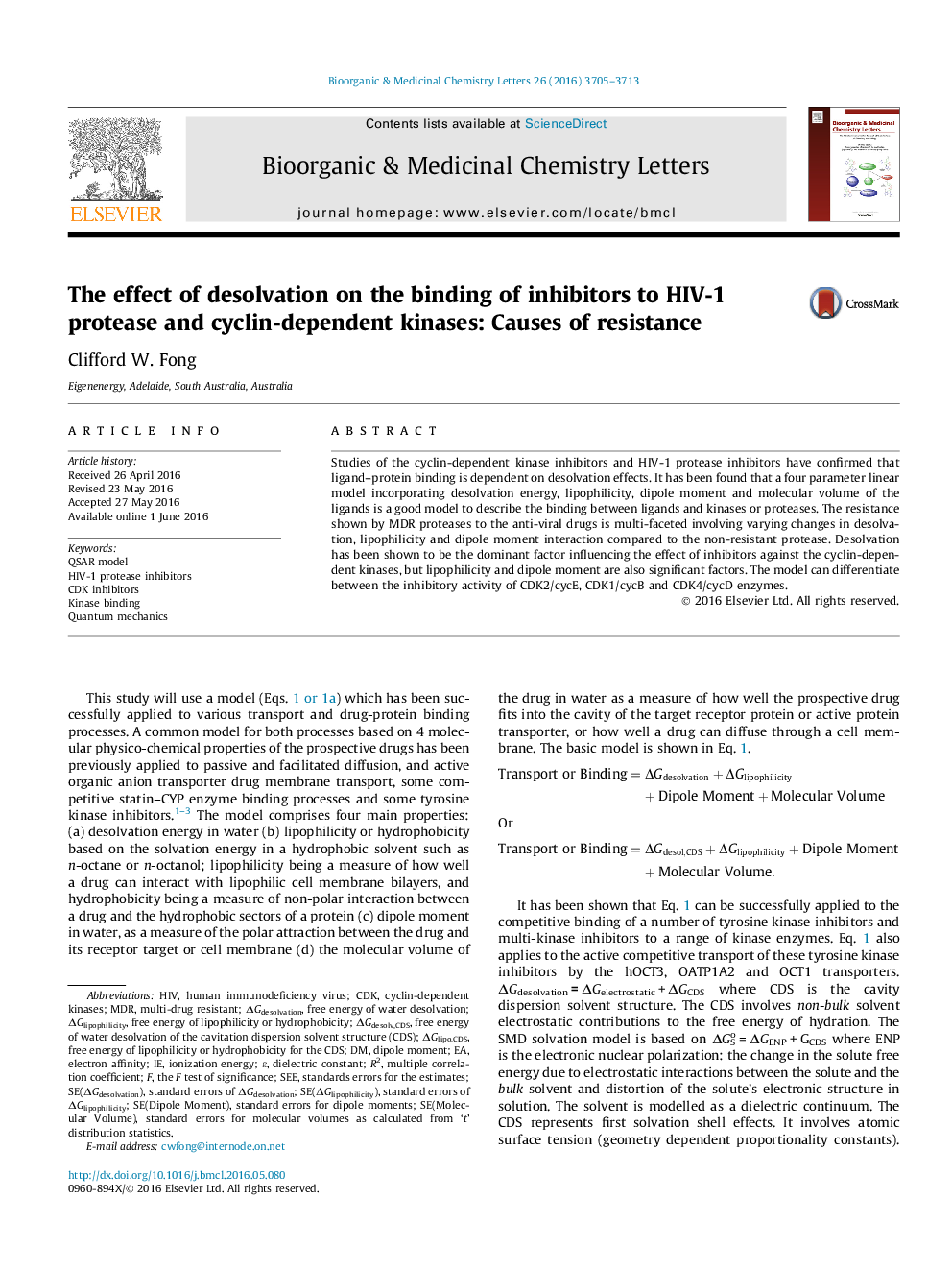| کد مقاله | کد نشریه | سال انتشار | مقاله انگلیسی | نسخه تمام متن |
|---|---|---|---|---|
| 1368545 | 981701 | 2016 | 9 صفحه PDF | دانلود رایگان |

• Novel QSAR: desolvation energy + lipophilicity + dipole moment + molecular volume.
• Binding cyclin-dependent kinase inhibitors: desolvation driven.
• Binding HIV-1 protease inhibitors: desolvation, lipophilicity, dipole driven.
• Resistance of HIV-1 proteases.
Studies of the cyclin-dependent kinase inhibitors and HIV-1 protease inhibitors have confirmed that ligand–protein binding is dependent on desolvation effects. It has been found that a four parameter linear model incorporating desolvation energy, lipophilicity, dipole moment and molecular volume of the ligands is a good model to describe the binding between ligands and kinases or proteases. The resistance shown by MDR proteases to the anti-viral drugs is multi-faceted involving varying changes in desolvation, lipophilicity and dipole moment interaction compared to the non-resistant protease. Desolvation has been shown to be the dominant factor influencing the effect of inhibitors against the cyclin-dependent kinases, but lipophilicity and dipole moment are also significant factors. The model can differentiate between the inhibitory activity of CDK2/cycE, CDK1/cycB and CDK4/cycD enzymes.
Figure optionsDownload as PowerPoint slide
Journal: Bioorganic & Medicinal Chemistry Letters - Volume 26, Issue 15, 1 August 2016, Pages 3705–3713